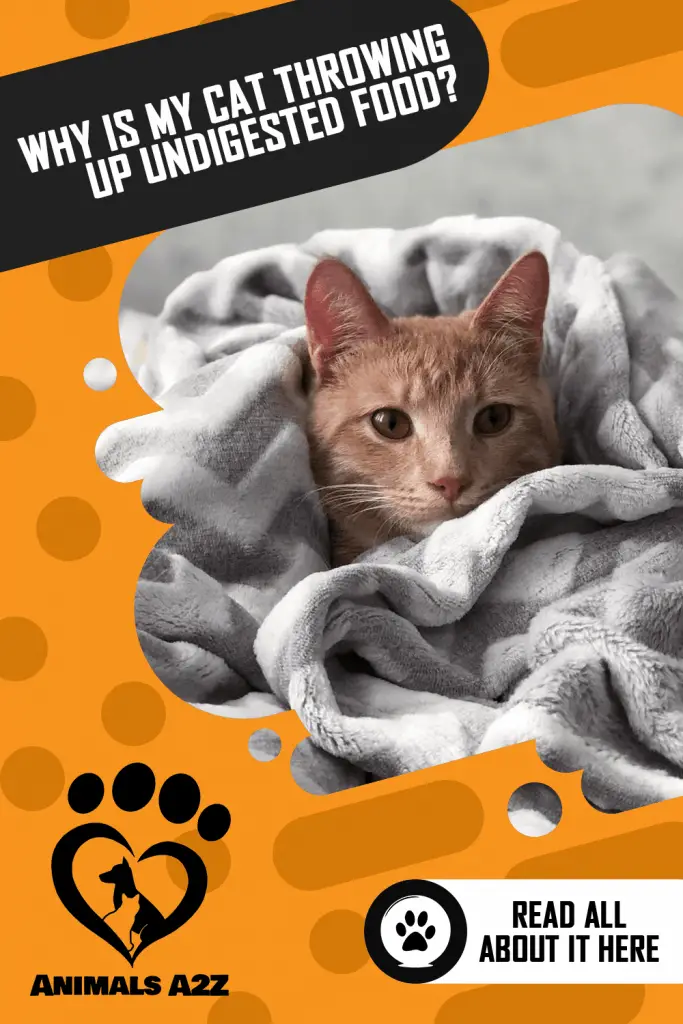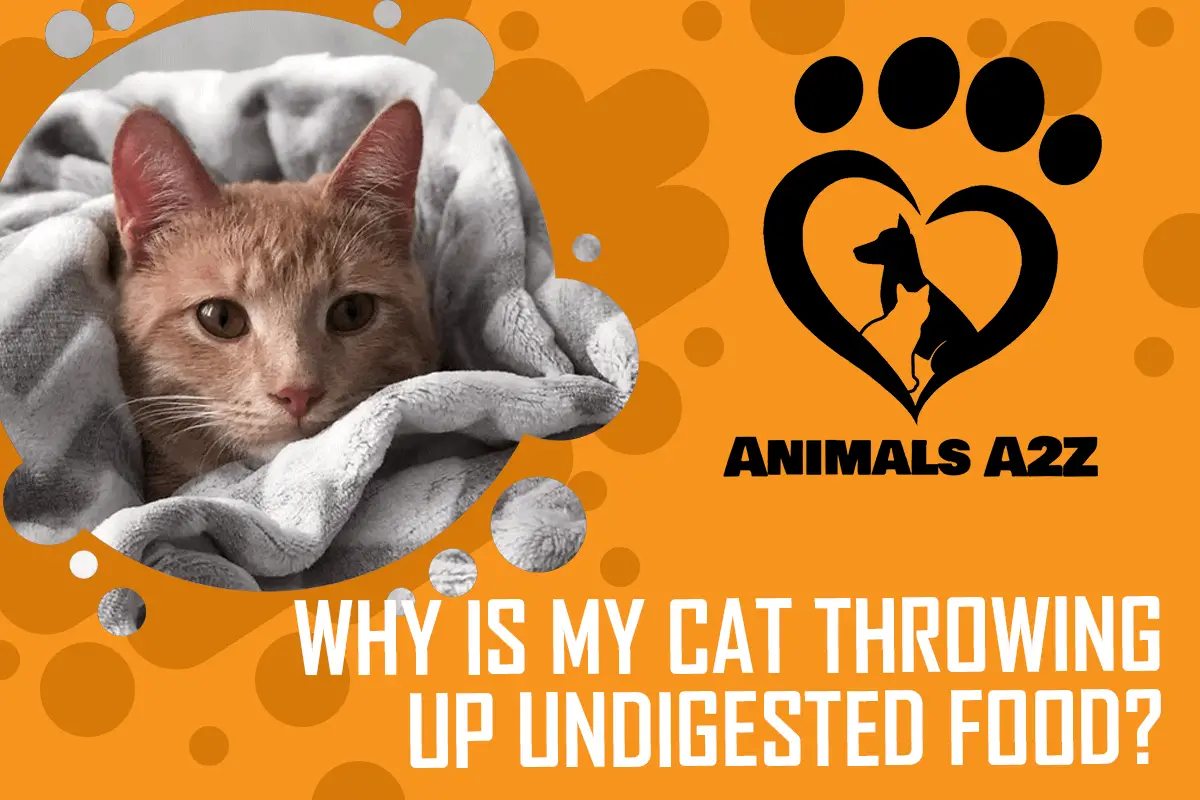If your cat is throwing up more than his occasional hairball and leaving some undigested or partially digested food around your house, you should visit your veterinarian as soon as possible in order to determine if she is suffering from an illness. Your trusted vet can be able to develop a helpful treatment plan for your cat in order to treat his condition. Your kitty could be regurgitating his food, which is a condition that is usually caused by rapid eating. Fortunately, your veterinarian can help a lot in determining this issue.
Your cat throwing up undigested food hours after eating?
Read about some reasons or view the video below.
Table of Contents
Regurgitation vs. Vomiting
Regurgitation isn’t quite the same as vomiting. If your cat lowers his head and expels any food he’s eaten immediately, he’s likely regurgitating it. The food will usually appear in a tubular shape, covered in slimy mucus, and undigested.
On the other hand, if your feline friend is heaving and retching before he expels the contents of his stomach, he is likely vomiting. The food your cat vomits will appear digested and it’s often accompanied by bile (a yellow fluid). It means that the food he ate had made it into his upper intestine or tummy, rather than just his esophagus. Whether it’s regurgitation or vomiting, there are different possible reasons or causes for each.
Causes of Regurgitation and Vomiting
Your cat might vomit because of hair buildup in his digestive tract that has been swallowed while grooming. This is often formed as a hairball and he needs to expel it according to experts. Your cat may also be experiencing kidney or liver failure if he’s frequently vomiting.
Hyperthyroidism, Addison’s disease, pancreatitis, stomach ulcers, diabetes, cancer, and panleukopenia virus might also cause your cat to vomit more frequently. If your feline friend is allergic to a specific type of food, ingests a toxin, experiencing anxiety, or swallows something that can cause a blockage in his intestine, he may throw up. On the other hand, a cat who regurgitates his food simply might be eating too fast, according to a veterinary expert.
Visiting Your Veterinarian
If your cat is regurgitating or her food or vomiting on a frequent basis, you should bring him to his veterinarian in order to rule out the underlying reason on his behavior. If possible, bring a sample of his vomit in a clean sealed container so that your veterinarian can inspect it and help your cat through making a diagnosis.
Your vet will also possibly run urine and blood tests. He might perform an abdomen ultrasound, X-rays, or use an endoscope in order to inspect your cat’s gastrointestinal tract. On the other hand, if your vet suspects a food allergy, he or she might prescribe a specialized hypoallergenic diet that contains an unusual protein he has never eaten before. The moment his medical condition is treated, regurgitation or vomiting should stop eventually.
Rapid Eating Solutions
Once your veterinarian has ruled out an underlying medical condition as the main cause of the regurgitation of your cat, he may be eating too fast. So, encourage your cat to eat slowly through feeding him small portions of meals throughout the day and or placing a toy ball in his food dish that he will have to eat around as it prevents him from scarfing down his food.
[crp]
Common Questions About Why A Cat is Throwing Up Undigested Food
What Does it Mean When A Cat Throws Up Undigested Food?
Throwing up undigested food simply means your cat is eating too fast. There’s a big possibility that your cat will regurgitate whole or undigested food after eating too quickly, even after several minutes have already passed. This is due to the fact that his swallowed food can possibly get backed up in his esophagus instead of going down to his stomach.
How Do I Get My Cat to Stop Throwing Up Food?
The easiest thing to do to prevent your cat from vomiting is to hack up hairballs. Through regularly brushing your cat, feeding him food with balanced nutrition and keeping him active throughout the day, you might be able to help in reducing the number of hairballs. Also, when it comes to the regurgitating habit of your cat, make sure that you feed him at the same feeding time every day.
When Should I Be Concerned About My Cat Vomiting?
It’s best to see your veterinarian if your cat:
- Cannot keep water down
- Continues to vomit repeatedly
- Is listless or lethargic
- Has dry, cold, yellow, or pale gums
- Could have eaten something that is quite unusual
- Has diarrhea aside from vomiting
- Has a known underlying health condition like renal disease or diabetes
Conclusion
Most causes of cat throwing up can’t be fully prevented. However, through removing any potentially harmful objects or foods from the environment of your cat can help a lot in minimizing the risk of toxicity or foreign body ingestion. It’s also best if you find the best method on how to help your cat eat slowly to prevent regurgitation.
Every cat is different which is why you need to find a way on how to cope up with your cat’s eating habit. To make sure you are doing the right thing and to find the most effective solution to this problem, visit your vet as soon as possible.


